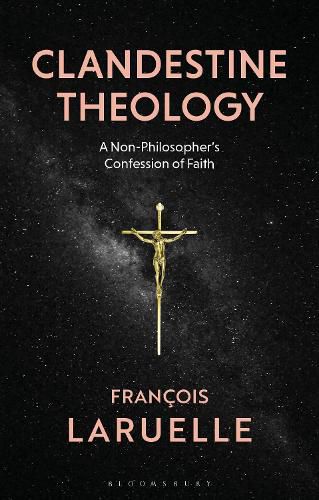Readings Newsletter
Become a Readings Member to make your shopping experience even easier.
Sign in or sign up for free!
You’re not far away from qualifying for FREE standard shipping within Australia
You’ve qualified for FREE standard shipping within Australia
The cart is loading…






In this new translation, Laruelle offers a serious and rigorous challenge to contemporary theological thought, calling into question the dominant understanding of the relation between Christ, theology, and philosophy, not only from a theoretical, but also political perspective.
He achieves this through an inversion of St Paul’s reading of Christ, through which the ground for Christianity shifts. It is no longer the ‘event’ of the resurrection, as philosophical and theological operation (Badiou’s St Paul), so much as the Risen Himself that forms the starting point for a non-philosophical confession. Between the Greek and the Jew, Laruelle places the Gnostic-Christ in order to disrupt and overturn such theologico-philosophical interpretations of the resurrection and set the Risen within the radical immanence of Man-in-Person.
Forming the basis for a non-Christianity, Clandestine Theology offers a more radical deconstruction of Christianity, resting upon the last identity of Man and the humanity of Christ as opposed to endless deferral or difference (Nancy) or the universalising economy of Ideas and Events (Badiou).
$9.00 standard shipping within Australia
FREE standard shipping within Australia for orders over $100.00
Express & International shipping calculated at checkout
In this new translation, Laruelle offers a serious and rigorous challenge to contemporary theological thought, calling into question the dominant understanding of the relation between Christ, theology, and philosophy, not only from a theoretical, but also political perspective.
He achieves this through an inversion of St Paul’s reading of Christ, through which the ground for Christianity shifts. It is no longer the ‘event’ of the resurrection, as philosophical and theological operation (Badiou’s St Paul), so much as the Risen Himself that forms the starting point for a non-philosophical confession. Between the Greek and the Jew, Laruelle places the Gnostic-Christ in order to disrupt and overturn such theologico-philosophical interpretations of the resurrection and set the Risen within the radical immanence of Man-in-Person.
Forming the basis for a non-Christianity, Clandestine Theology offers a more radical deconstruction of Christianity, resting upon the last identity of Man and the humanity of Christ as opposed to endless deferral or difference (Nancy) or the universalising economy of Ideas and Events (Badiou).